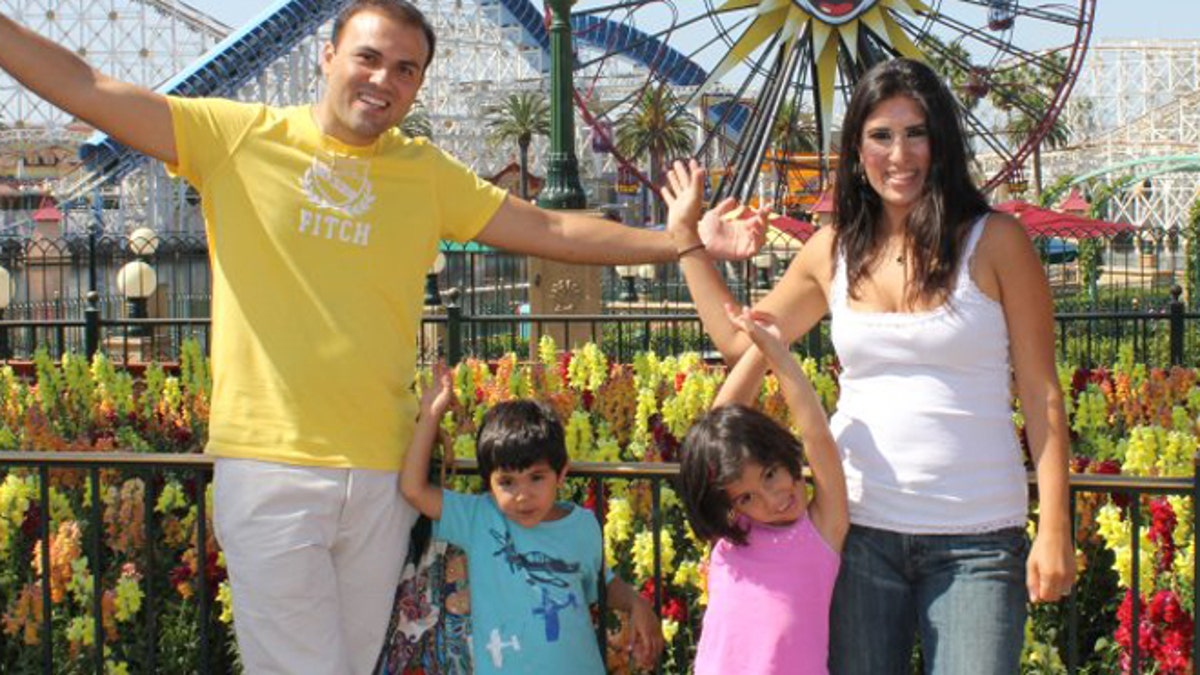
Saeed Abedini has not seen his family in nearly three years, including young daughter Rebekka and son Jacob. (Fox News)
Something happened during the 2014 World Economic Forum in Davos, Switzerland this year. It didn’t make headlines, but it’s something that certainly should not be ignored.
While Iranian leaders spent most of the time talking about their nuclear program and other issues including Syria, there was a brief exchange between a reporter and Iran's foreign minister related to Iran's imprisonment of several Americans -- including Pastor Saeed Abedini, who's been in captivity for more than a year now simply because of his Christian faith.
In the past, when leaders were asked about Pastor Saeed and other imprisoned Americans, the response was short and to the point: those imprisoned were convicted of serious charges and essentially got what they deserved.
[pullquote]
But this time, when asked about the fate of Pastor Saeed and others, there was a different, and quite frankly, unexpected response.
Foreign Minister Javad Zarif said: "We have various clemency measures in Iran that can be introduced, happened in the past, can be introduced again in these cases."
Is clemency really a possibility? Or is raising the clemency issue just a public relations move in an attempt to improve Iran’s image?
It's impossible to determine the real motivation here. As with anything that comes out of Iran, the comment needs to be viewed with a healthy dose of skepticism. But, at the American Center for Law and Justice -- where we are engaged in international efforts to secure Pastor Saeed's freedom -- this development might just represent a glimmer of hope.
Here’s why: in his response, the foreign minister specifically chose the word "clemency" -- a powerful word with a powerful meaning.
Iranian leaders choose their words very carefully. To use a word that’s defined by kind or merciful treatment of a prisoner is a significant statement. And it’s the first time Iran has publicly acknowledged a possible alternative to Pastor Saeed serving out his full 8 year prison term.
This development also comes at a critical time for Pastor Saeed who remains in Rajai Shahr Prison -- Iran's most dangerous and deadly prison.
His health continues to worsen. According to family members who visited him recently, Pastor Saeed is still experiencing significant pain in his abdomen.
He's been examined by a prison doctor who provided him with pain medication and said that surgery is needed to address internal injuries he received from beatings he endured while in Evin Prison many months ago.
His family in Iran is now petitioning the Iranian government to allow Pastor Saeed to receive the critically necessary surgery at a private hospital.
Pastor Saeed needs to be released from prison. He needs medical attention. He needs to be returned to his wife and two young children in the United States.
If Iran wants to be taken seriously on the world stage, it should grant Pastor Saeed clemency now. With the next round of nuclear talks scheduled in New York next month, this is the perfect time for Iran to act.
Iran’s Foreign Minister says it’s up to the judiciary – and not Iran’s government leaders – to approve any clemency request. But we also know that Iran’s judiciary does not operate in a vacuum. We know that Iran's President Hassan Rouhani and top leaders do have tremendous influence with the judiciary.
That's why we're calling on President Rouhani and Foreign Minister Zarif to introduce a request in Iranian court for clemency for Pastor Saeed – a move that would demonstrate good will – a move that would be viewed as a bold humanitarian gesture around the globe.
It's a plea also being made by some members of Congress including Sen. Rand Paul who sent his own letter to President Rouhani:
I wish to remain cautiously optimistic regarding the recent diplomatic progress between our two nations. However, I must point out that if something were to happen to Pastor Abedini while he is incarcerated, any good will forged over the past few months would likely evaporate. Conversely, granting clemency to Pastor Abedini and allowing him to return to the United States would do much to create a positive atmosphere that would reflect well on future discussions.
As Sen. Paul concluded: "Cooperation and trust are built one gesture at a time and actions speak louder than words."
It's time for Pastor Saeed to come home.
